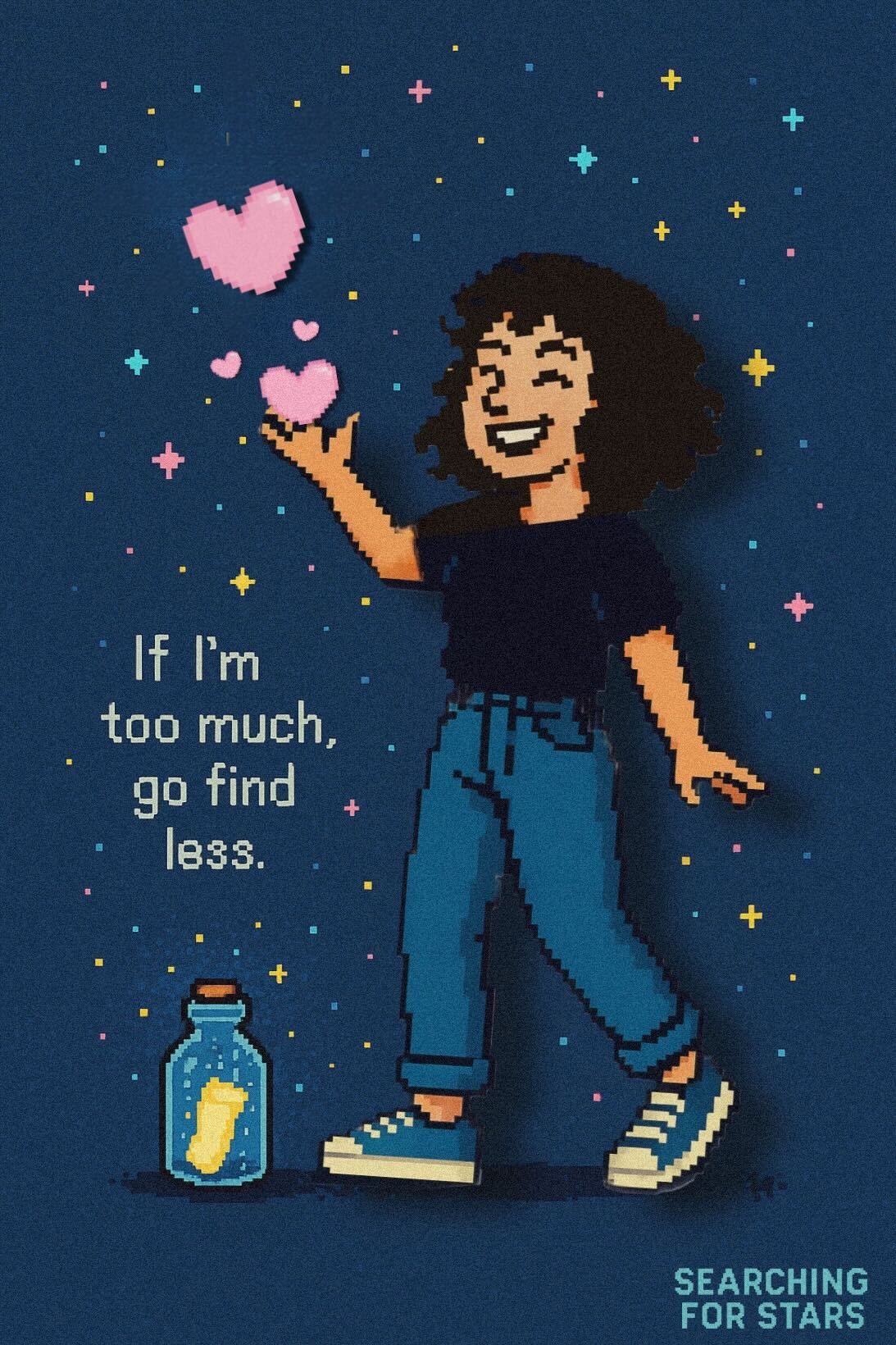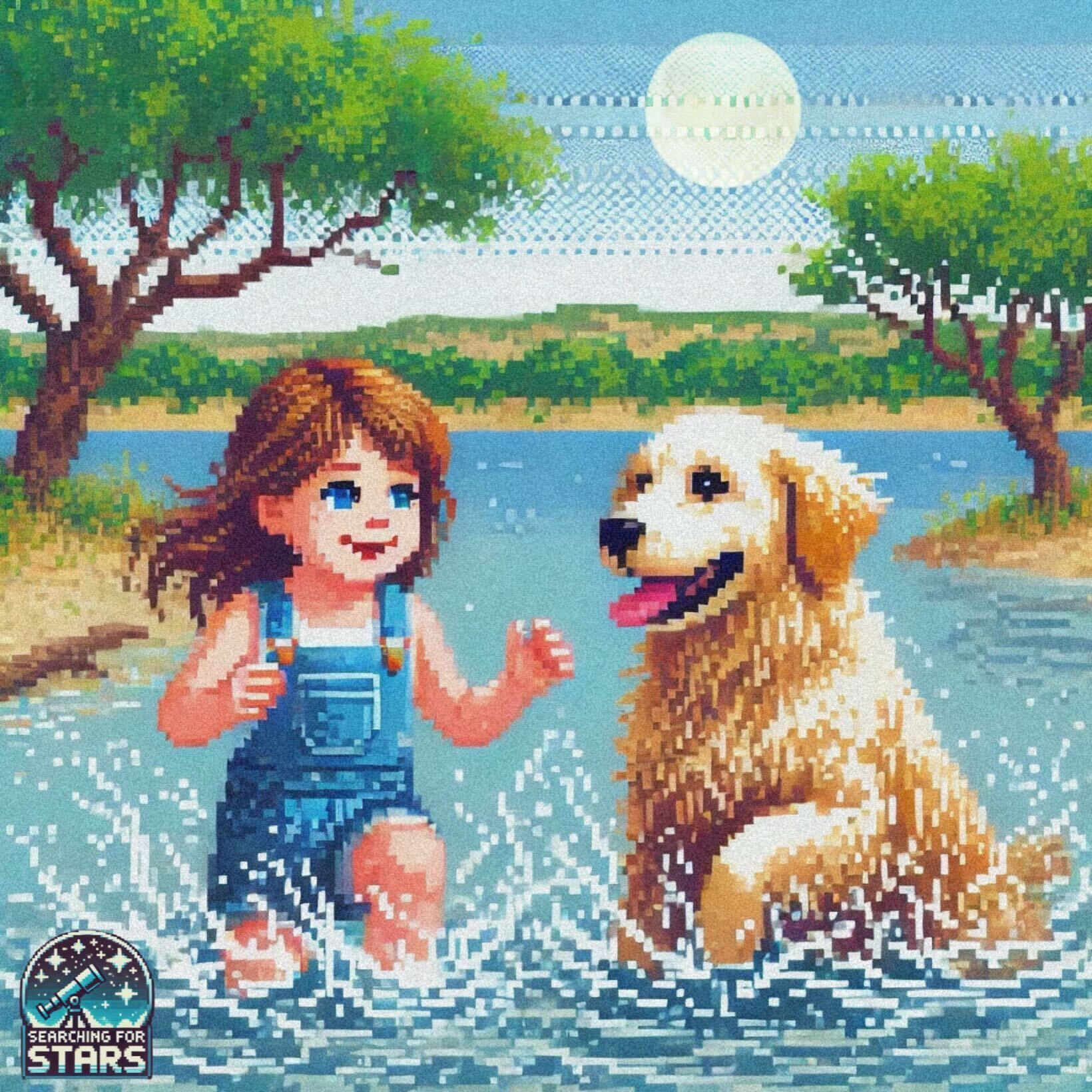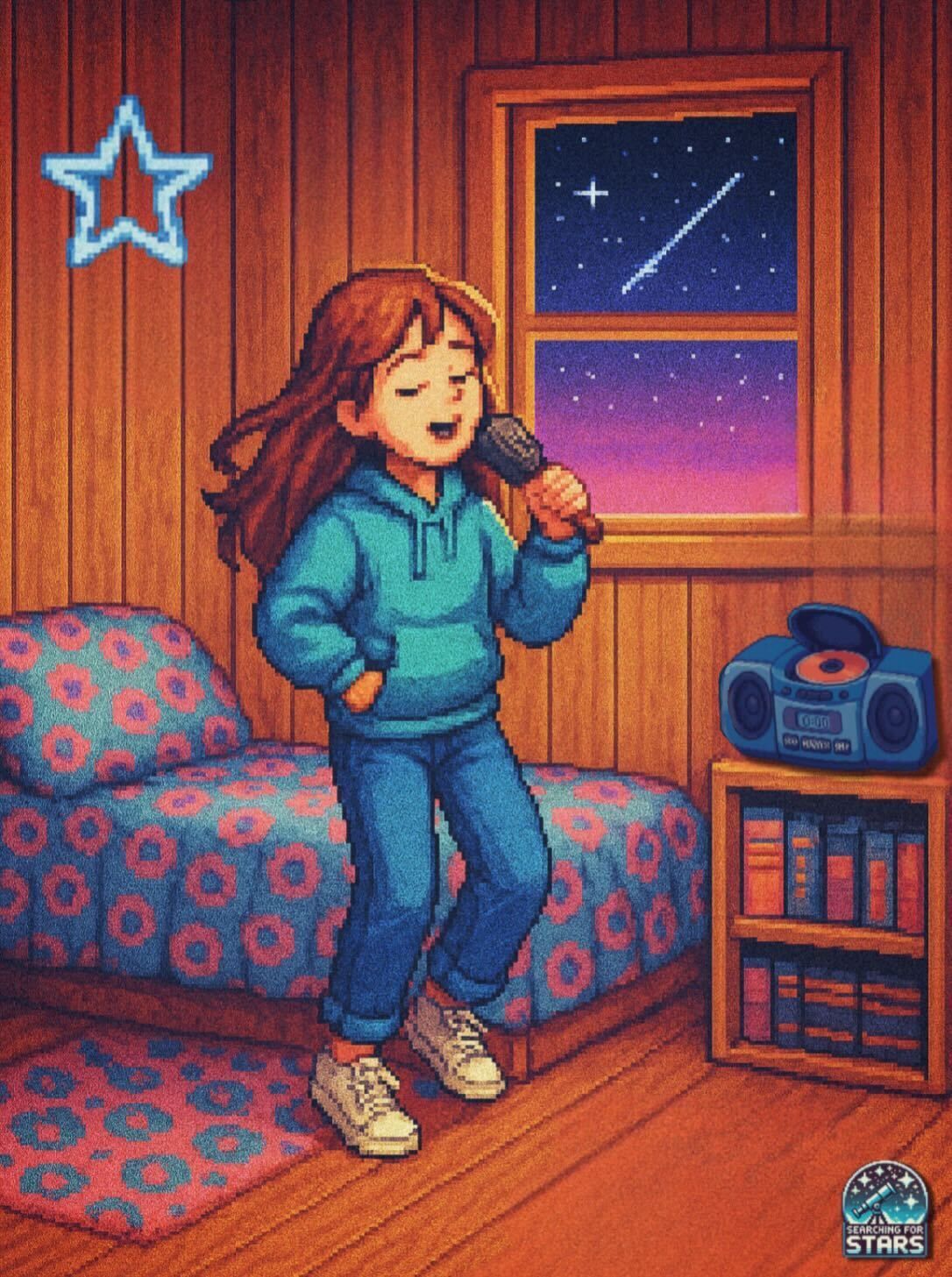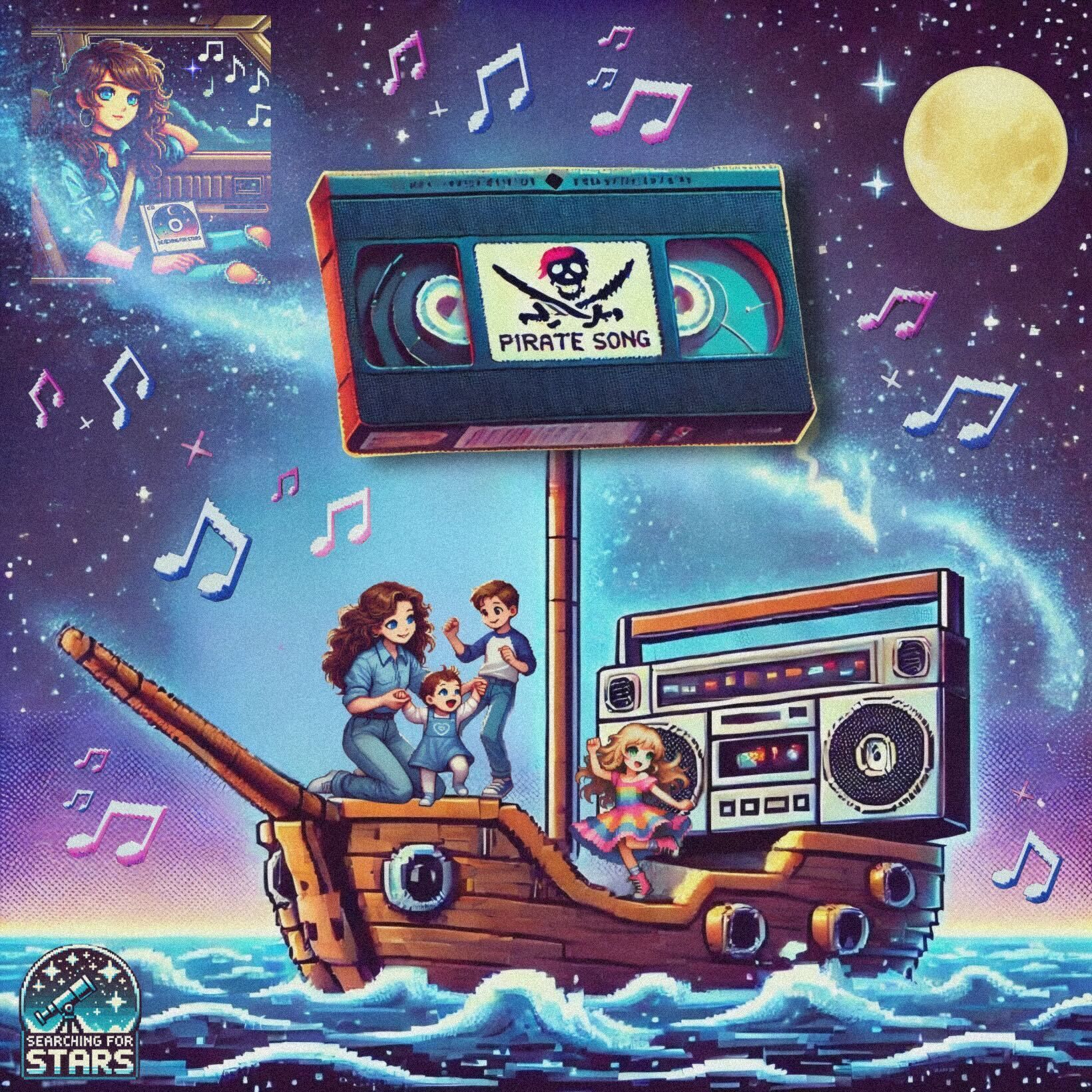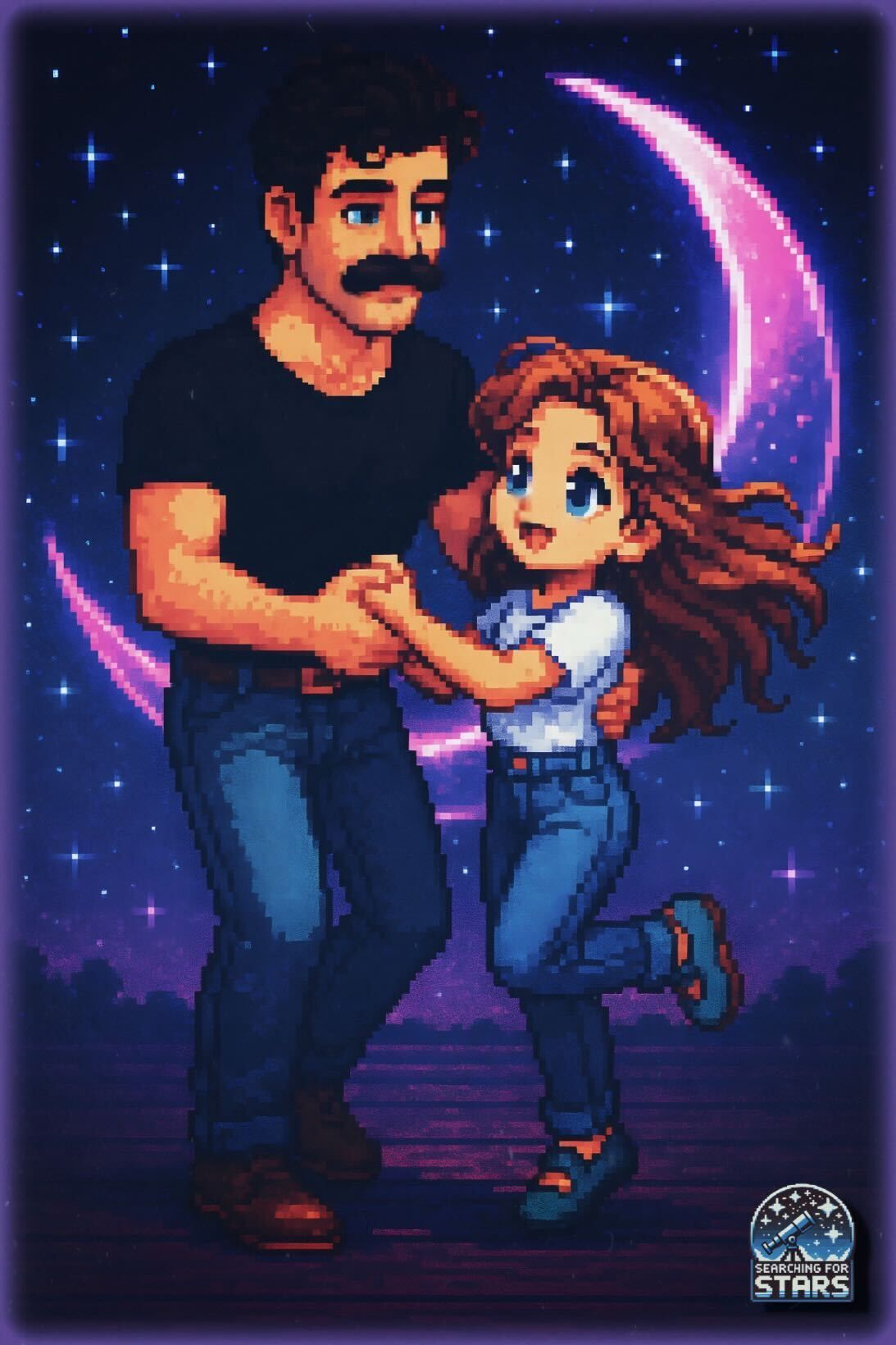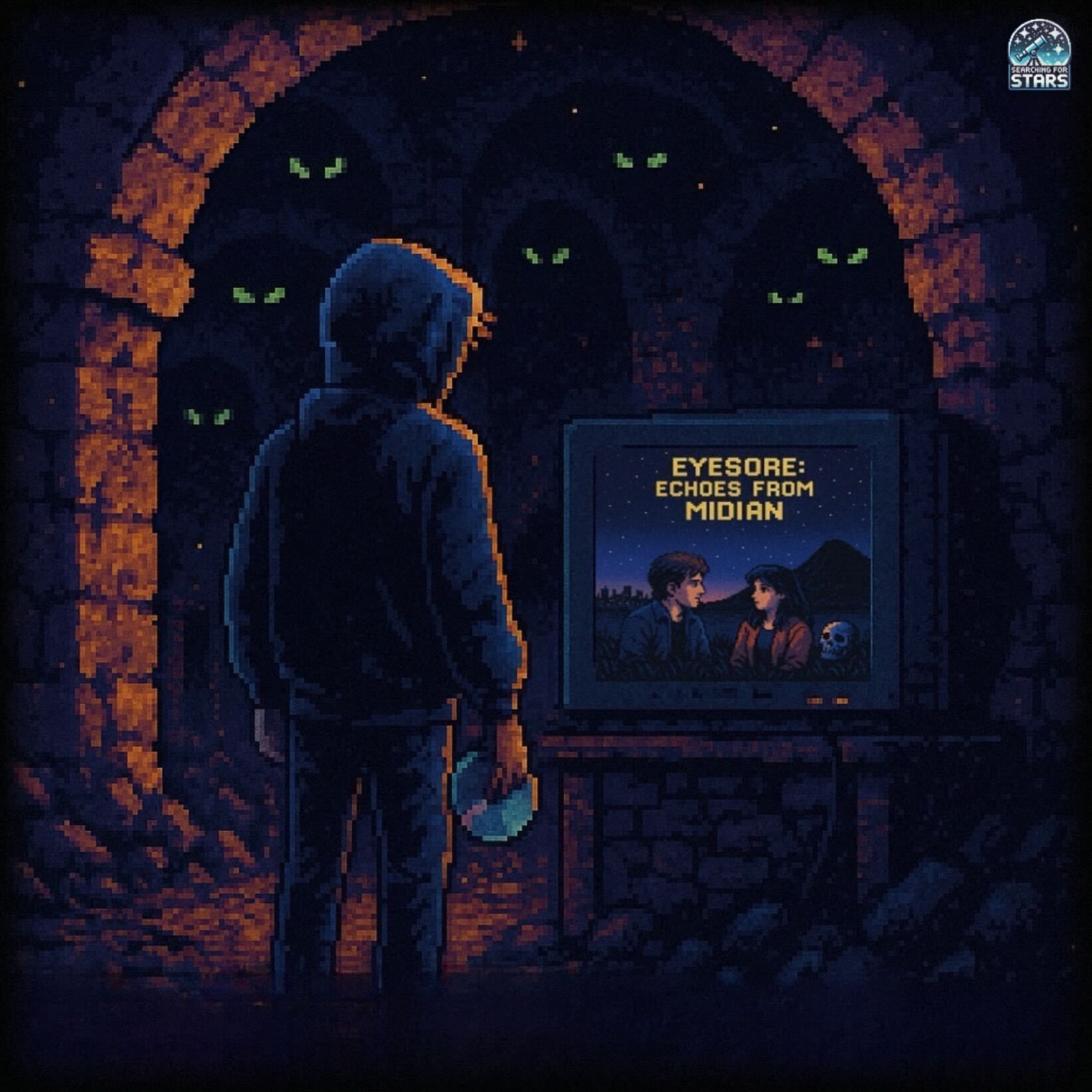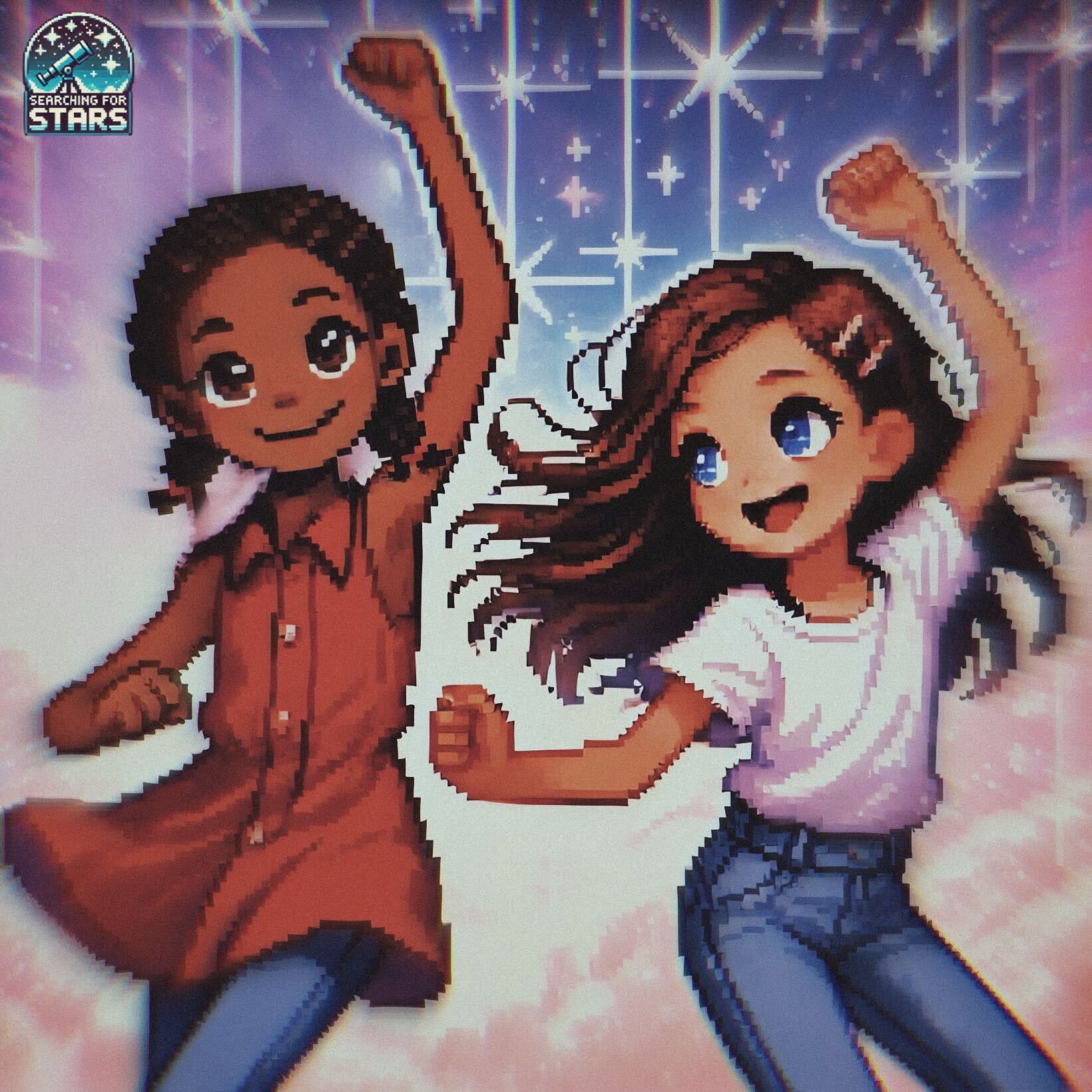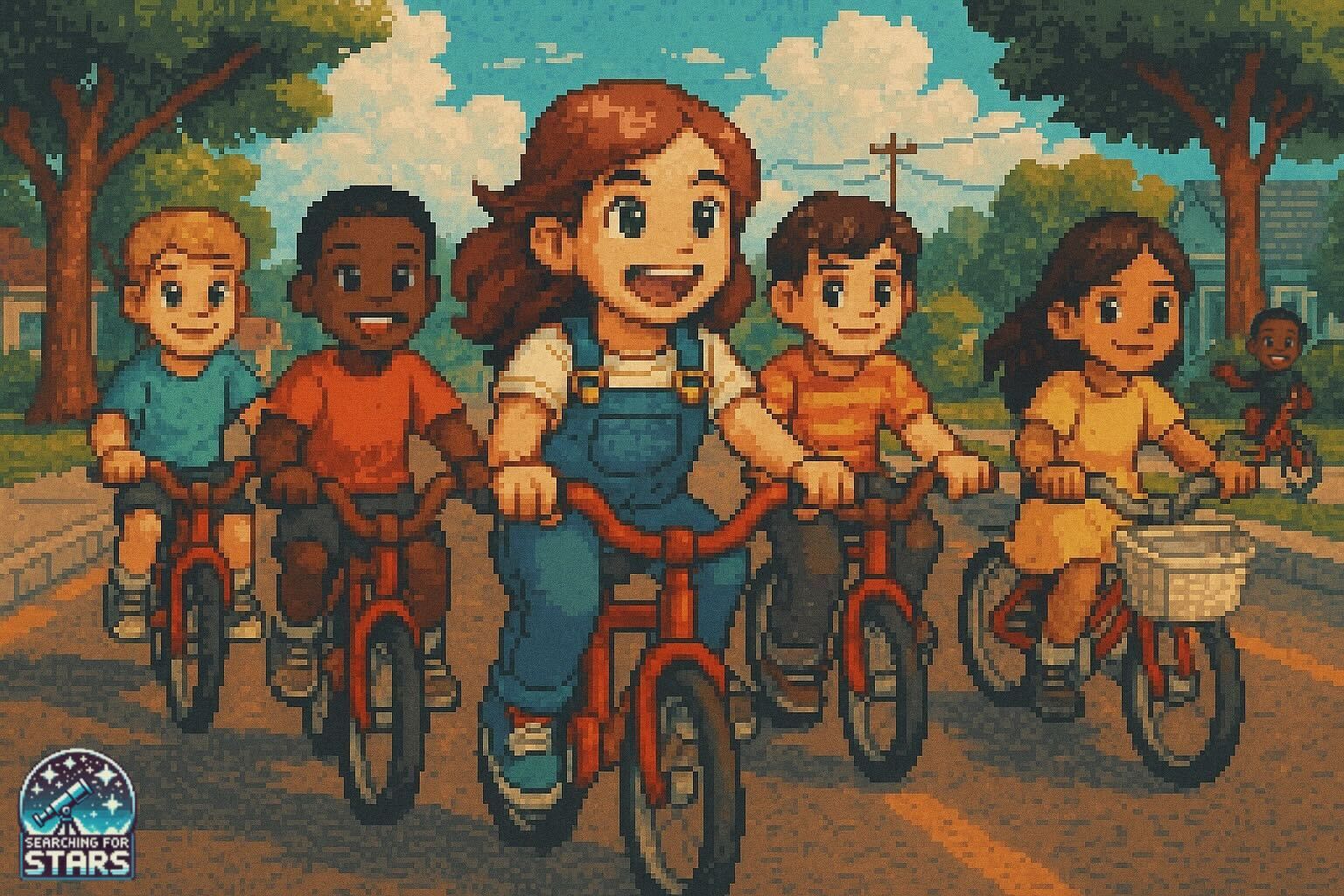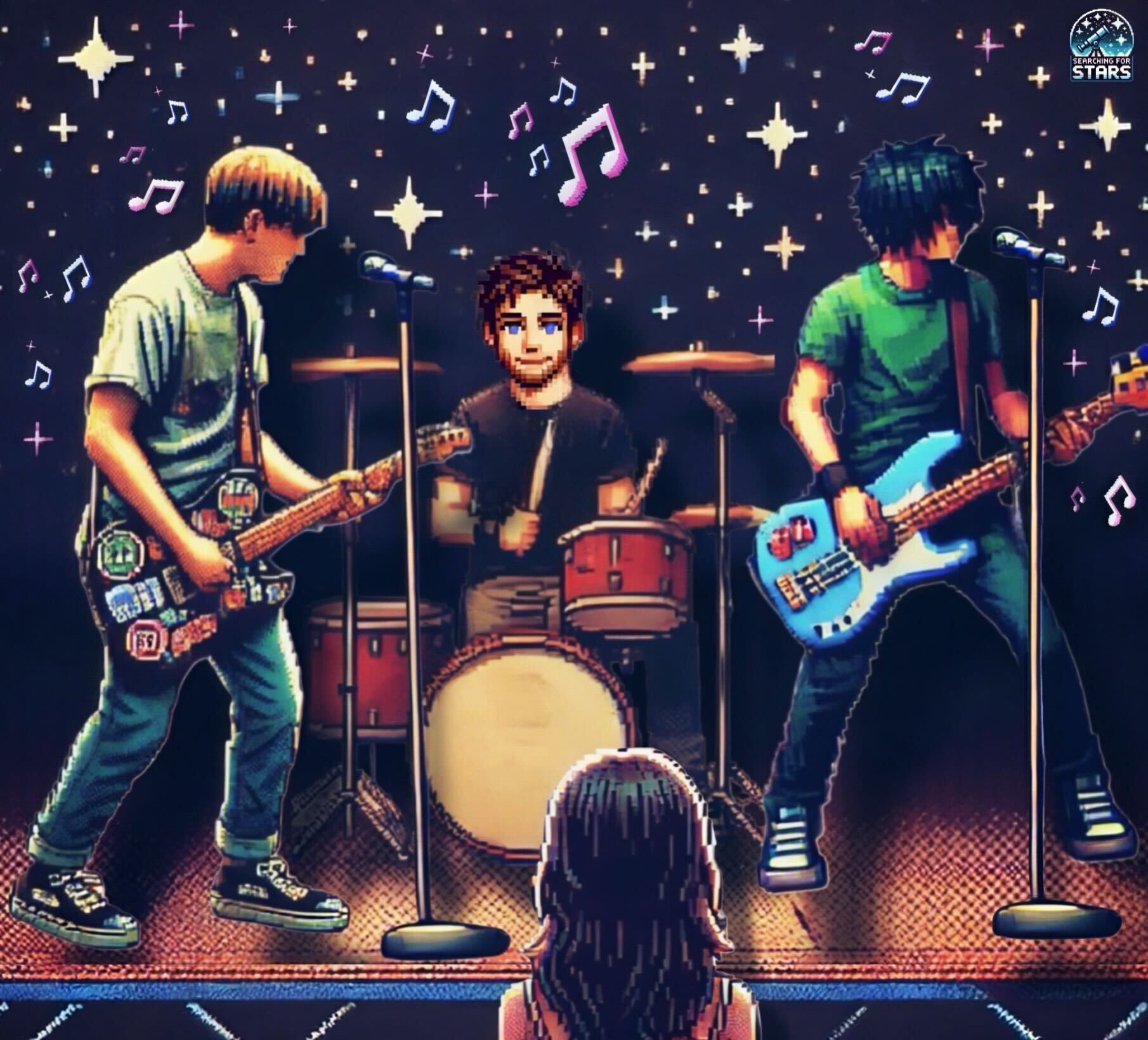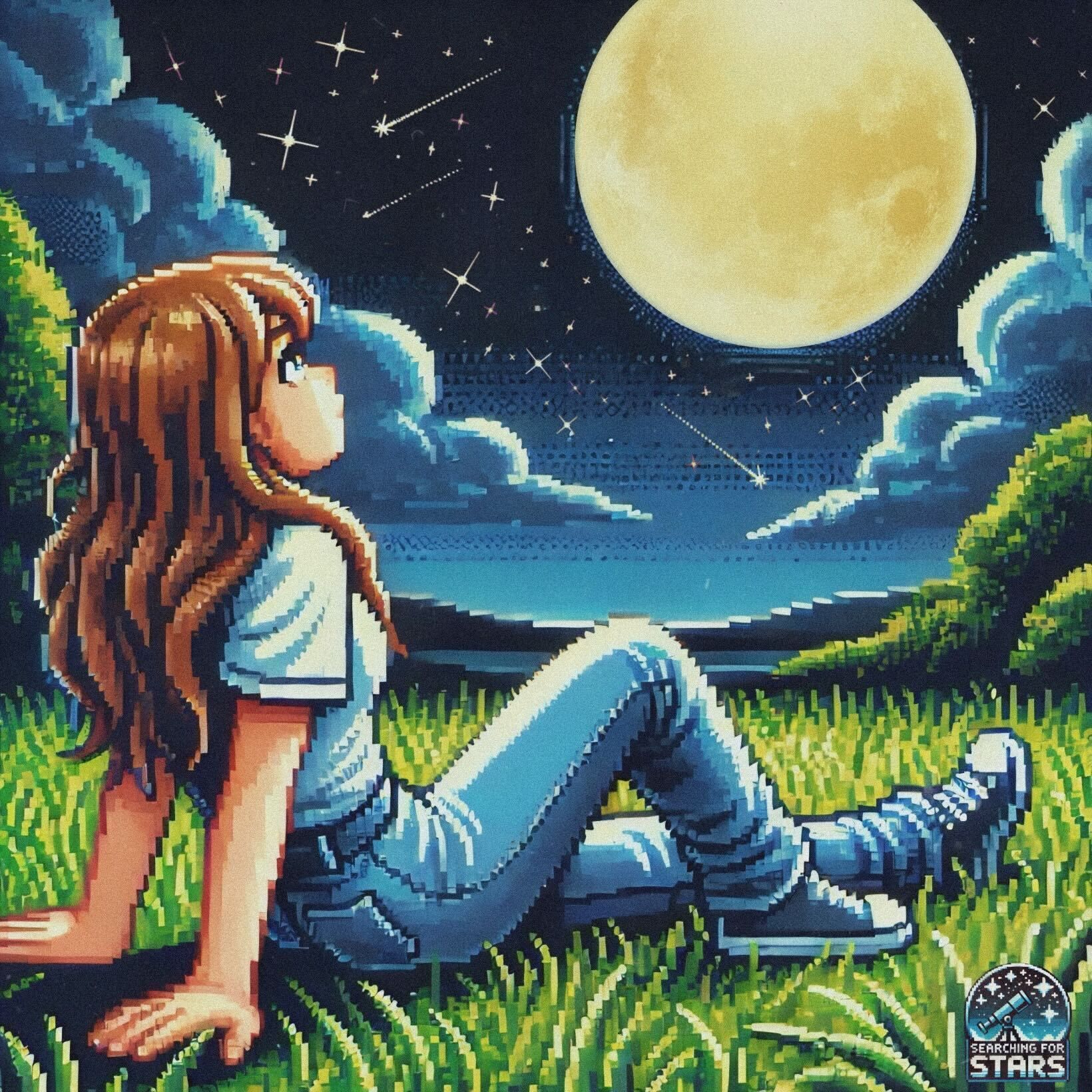Free Fallin’: The Weight of a Song and What the Music Remembers
Tom Petty: Free Fallin'
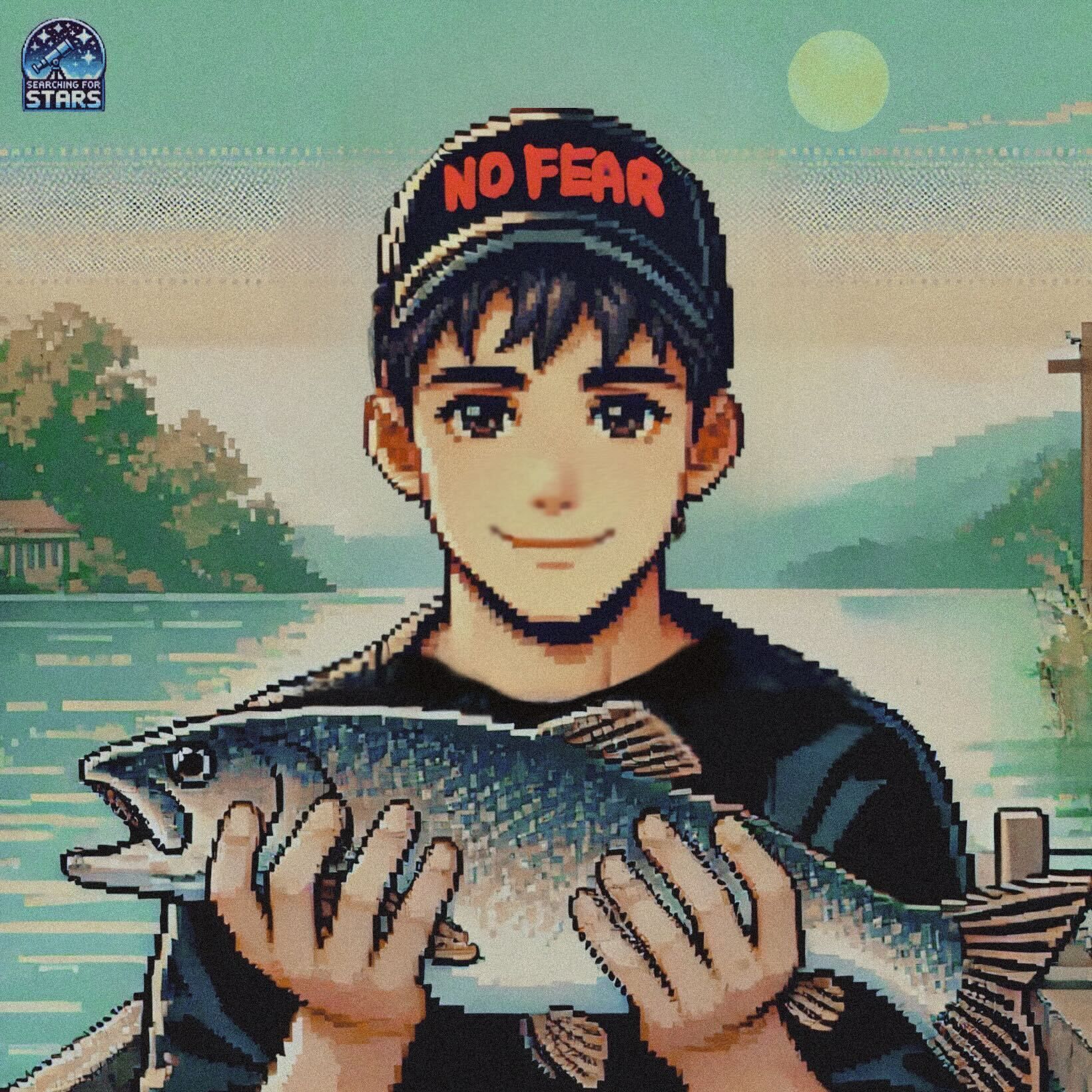
Audio Book Style
Trey, I still hear you singing.
The summer before you left, we packed into that giant white van Carl had rented for vacation and drove down to Galveston, the radio set to 92.1, classic rock spilling through the speakers like an anthem to our youth. You and Bobby played your game—five seconds, ten seconds tops—to guess the song and the band. You always knew.
Free Fallin’ came on, and I don’t remember if you called it first or if Bobby did, but I remember you singing it. Loud, carefree, like you could feel the song in your bones. You leaned back in your seat, drumming against your knees, letting the wind rush in through the open window as you belted the words. The sun was setting over the highway, turning the sky pink and gold, and for those few minutes, nothing else in the world mattered. You were there. Alive. Laughing. Singing.
And then you were gone.
The night it happened, I was playing Skip-Bo with Becky, cards spread out between us, our world still intact. A knock at the door—late, too late for a visitor.
I opened the door somewhat hesitantly, and there was Donnie, standing on the porch, his face pale, his hands clenched into fists frantic and upset. I had known Donnie for years, but I had never seen him like that.
“I need to talk to your mom.”
His voice cracked on the words.
I don’t know why, but I stalled. “She’s asleep.”
“Lauren,” he said, eyes locking on mine. “Get her up. Now. It’s an emergency!”
I felt it then, before the words even came. The air shifted, thickened, pressing down on me. My hands were numb as I turned and knocked on her door. When she opened it, groggy and confused, Donnie didn’t hesitate. He pulled her into his arms, bursting into tears, and said it.
“There’s been an accident. Trey’s dead.”
I fell to the floor. I think my soul broke in half. It was like the air had been stolen from my lungs, like my body couldn’t hold the weight of those words.
They said you died instantly. That the cars crashed, that there was fire, an explosion. That you didn’t feel a thing. I want to believe that. I have to believe that. But nothing about it felt real. Nothing about it felt fair.
The funeral—God, Trey. The whole town shut down for you. School closed. Stores closed. People spilled out of the doors, into the street, because there wasn’t enough space inside to hold the weight of your absence.
Your mom—Jeanette—she was shattered. “I need to see my baby,” she cried. Over and over. Running toward the casket, needing to hold you. But Trey—there was nothing to hold. Nothing left. And that broke something in all of us.
I think something inside me went quiet after that. Maybe permanently.
Trey wasn’t just my brother’s best friend—he was part of our family, part of the noise in our house, part of the stories that made up our childhood.
Bobby didn’t really talk about it. He held it in, buried it beneath a tough exterior—wore his pain like armor. But I know it hollowed him out in ways he never let anyone see. I knew it changed him, the way it changed me. The way it changed all of us.
The thing about Trey was that he didn’t just exist in a room—he filled it. He walked in, and suddenly, the air was charged, electric, like something was about to happen. And usually, it was. He had this way of making people feel like they belonged, like they were in on the joke, like the world was a little less heavy just because he was in it.
He was an honor student, smart as hell, but he never acted like it mattered. He wore No Fear shirts like a uniform, chewed Winterfresh gum constantly, and was always drumming—on his knees, on desks, on the dashboard of whatever car he was in. He played the actual drums too, of course, but it didn’t matter if he had sticks in his hands or not. Trey was rhythm, movement, noise, life.
I had known him my entire life, etched into most of my adolescent memories, right there beside Bobby. I loved him so much. He never forgot my birthday. He made me feel like a little sister. He was good to me. He was kind. He protected me. He looked out for me. He always gave me CDs trying to help Bobby fine tune my music taste. When I was really, really young, he used to give me Polly Pockets for birthdays. Every morning, when we picked him up for school, he handed me a stick of gum. Bobby rode up front, which meant Trey rode in the back with me. And I loved it.
One day, years later Free Fallin’ came on the radio.
I was in the car, and before I even realized it, my hands were clenched tight, my breath caught somewhere in my throat. Because suddenly, I wasn’t in the car anymore. I was back there, in that rented van headed to the beach the summer before, Trey in the backseat, drumming on his knees, singing at the top of his lungs like he was invincible.
I can still see them—Carl, Bobby, Trey, and Billy—throwing a football on the beach in Galveston that summer, the ocean stretching out behind them, the sun melting into the horizon. A perfect moment, frozen in time. I think I’ll always remember them that way.
The music cut off, the radio host’s voice breaking through, but I wasn’t listening. I was Lost in memory, fists clenched, throat tight, eyes blinking too fast. Just trying to catch my breath.
Some songs don’t belong to the artist anymore. They belong to the moments they were playing in, to the people who made them something more. Free Fallin’ belonged to Trey.
Often, it’s the smallest memories that stick. The ones you don’t realize mean something until years later. When I was little, I used to watch the classic Maverick TV show reruns with my dad. Then, when the Mel Gibson Maverick movie came out, I saw it for the first time at Trey’s house. We sat on his old red iron futon, one of those bunk bed setups with the futon couch set up on the bottom and a twin bed up top.
I don’t know why that moment imprinted on me the way it did, but it’s there, clear as day—Trey and I, watching Maverick, the flicker of the screen, the feeling of being completely at home. Maybe it’s no coincidence that years later, when I had a son of my own, his middle name became Maverick.
Sometimes it wrecks me. A sucker punch to the ribs. A weight pressing down on my chest. But other times—other times, it feels like Trey’s still here. In the car. Singing, drumming on his knees, taking up space in the way only he could.
And somehow, through everything, Tom Petty remained a presence. A constant.
In 2008, when Jamie and I were unraveling, my dad got us all tickets to see Tom Petty in The Woodlands. Jamie and I were trying to find our way back to each other, and my dad, in his infinite wisdom, refused to let me “waste that ticket on anyone who wasn’t Jamie”. “You know he’s going, right?” he said. “You know that boy loves you.”
I found myself standing in the middle of a sea of people, Tom Petty’s voice rising into the night air. Jamie stood beside me, the distance between us smaller than it had been in weeks.
Then Free Fallin’ started.
I tensed at first, bracing for the impact, waiting for the ache in my chest to return. But then Jamie reached for me. He slid his arm around my shoulders, pulled me close, and in that moment, the song wasn’t just about Trey anymore. It wasn’t just about grief or ghosts or the past that refused to let go. It was about the present. About love that had endured, about comfort found in the space between loss and healing.
And when Tom Petty sang that final line, I let it wash over me, not as something that hurt, but as something that had lived through all of it and still remained.
See, The thing about Free Fallin’—the thing about Trey—is that they don’t just exist in the past. They show up in the strangest places. In summers that stretch out long and golden. In the weight of grief that never fully lets go. In the night Jamie and I stood side by side, trying to remember how to hold on.
Tom Petty sang, I’m gonna leave this world for a while.
And Trey did.
But somehow, I’ve never known a world without him.
Searching For Stars
